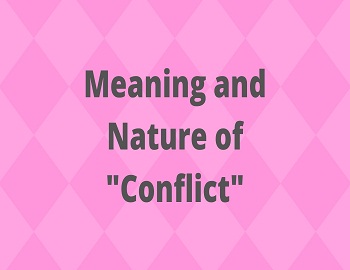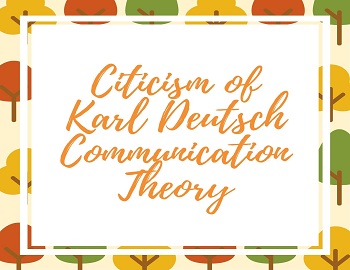Decision-Making Approach Criticism:
Political scientists have applied a number of methodological techniques for the study of the decision-making process. It includes various new methods such as the case-0study, roll-call studies, survey research, observation, interview etc.
The decision-making approach, however, suffers from a variety of defects: first, there is no uniformly accepted method or technique by which decision-making may be probed. Each thinker has described his own variables. No one has suggested any single technique of research in this sphere. This approach is based on the principle of inter-determination and fails to suggest which one of the numerous elements that go into the many sides of the box is really relevant.
Secondly, this approach, according to some critics, is too rationalistic. According to Wasby, it informs us to assume that the decision-makers “act as if they were capable of rational calculation, i.e. they can rank alternative preferences and consciously select the most efficient or feasible means consistent with their rank preference; orderings of the alternatives for attaining explicitly stated goals. The assumption of rational behaviour, preferred most consistently by decision-theorists, obviously implies that a decision maker’s personal idiosyncrasies do not determine the form of the process of selecting the alternatives”. To quote Frankel, “We seem to have allowed to grow up around us a decision-making process in which those who make decisions are invisible and in their invisibility do not make themselves know that they are making such decisions. The result is a kind of organized irresponsibility built out of the decisions and actions of the countless disciplined and responsible men”.
Thirdly, this approach has failed to evolve a convincing theory. Snyder of course developed some new premises and concepts but did not specify how and when to use them. To quote James N. Rosenau: “While many of the criticisms of the approach were ill-founded, it is certainly true that Snyder identified the existence of a number of relations without attempting to theorize about their components and structure. Notwithstanding the vast array of categories and sub-categories, the links among them remain unspecified. He identified un-explored phenomena but did not indicate how they might unfold. He called attention to new premises and concepts but did not specify when, where and how they might be used. He suggested problems that could be fruitfully researched, but did not provide substantive guidance as to how the researcher could proceed”.
Fourthly, this approach proceeds with a value-free concept, in as much as it only tries to analyse the various decisions taken in the realm of foreign affairs without bothering as to which decisions are right and which are wrong.
Fifthly, whatever the circumstances, the focus of decision-making is often obscure; the man in authority may delegate most of his policy powers to the subordinate or, especially in a weak organization, a subordinate may actively take the initiative, a line of action that may be legitimized by the legal authority.
Despite shortcomings, the decision-making approach has made an enormous contribution to the study of International Politics. Rosenau says, “Despite the critical preoccupation with the rationality problem, Snyder’s emphasis upon the decisional phenomena stirred widespread thought among political scientists, especially those in the fields of international politics and foreign policy”. He further says, “The impact of the decision-making approach could even be discerned in the work of scholars who continue to use some of the traditional terminologies. For several years subsequent to 1954, it became quite commonplace for analysts to preface their use of abstract terms with qualifying foot-notes that took note of the dangers of reification and that recast the traditional language into a decision-making context”. To conclude our discussion of the decision-making approach for foreign policy analysis may be right, but for the rest of international politics, it is too weak.









Comments (No)